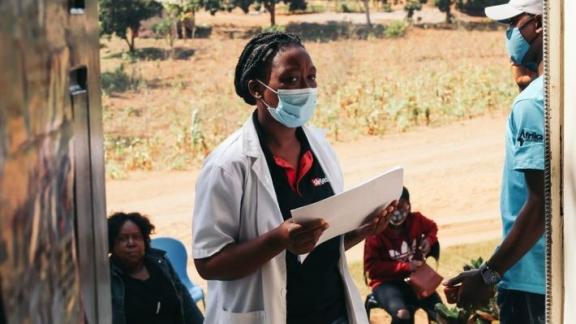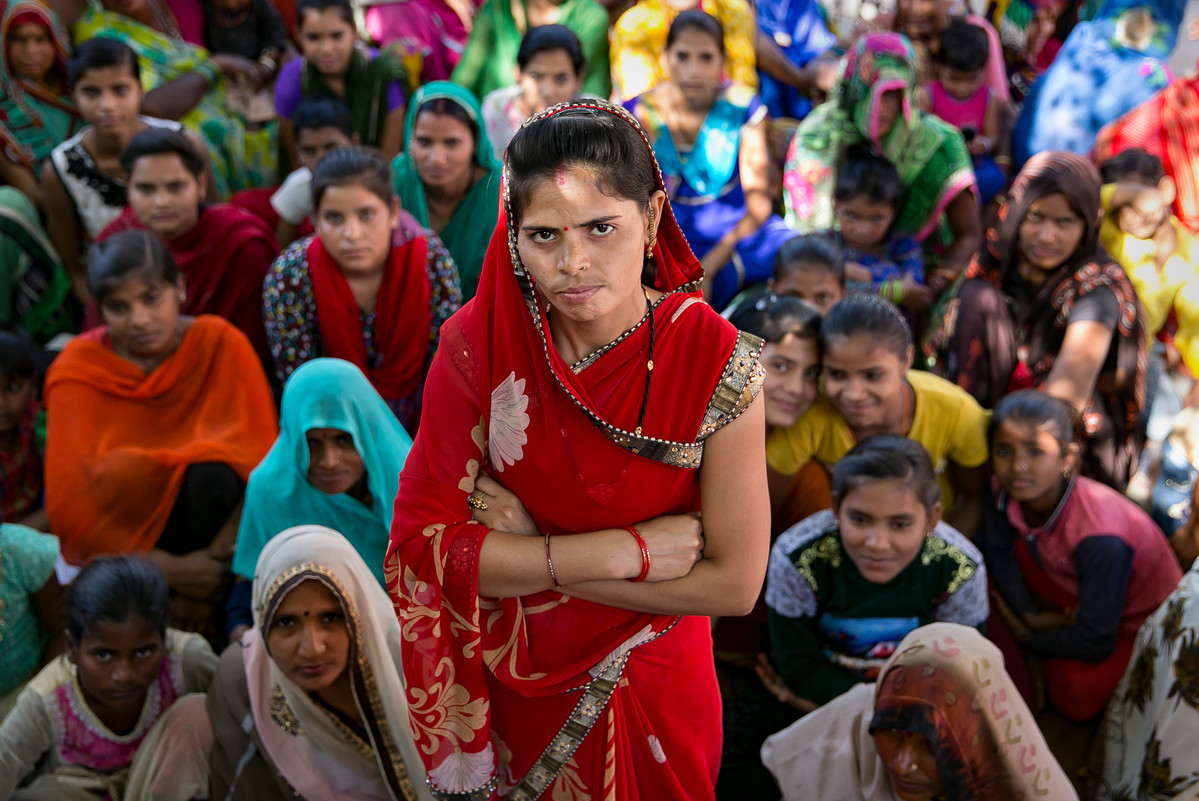By Heidi Quinn, IPPF WISH2 Project Director
11 July 2021 marks World Population Day, and the world’s population has reached a projected 7.9 billion people – up from 7.79 last year. As a director of IPPF’s Women’s Integrated Sexual Health project (WISH2) – a large integrated sexual health project – I am reflecting on how we have done since last year, and what have been the effects of the COVID-19 pandemic on the activities and outcomes of the project?
While the project has continued to deliver on goal, have we sufficiently adapted to the new normal, and have we 'done right' by the women, men and young people we aim to serve?
One year on since the last World Population Day, while figures project the global population has gone up, we ponder is this by choice or chance? Are people choosing not to have more children during a pandemic, or have people been unable to access contraceptive services?
Adapting rapidly to COVID-19
In order to maintain access to services, last year WISH2 rapidly adapted programme activities and sexual and reproductive health (SRH) service delivery within six weeks of global pandemic restrictions coming into effect, to ensure access to information and services across 15 countries in Africa and Asia. Yet there is no disputing that optimal access to contraceptive, abortion and counselling services was, and still is, severely restricted for many women and men, and especially young people, people living with disabilities, women at risk of sexual and gender-based violence (SGBV), and those in humanitarian settings.
Working in partnership as a consortium, the project has been advocating to governments that SRH is an essential service that needs to continue during pandemics and health emergencies. In Bangladesh, the project collected evidence on the intersection between family planning, SRH and COVID-19 at rural health facilities, highlighting how COVID-19 has affected SRH services. As a result, we provided recommendations to the Directorate General of Family Planning (FP), and a system to track budget allocation, disbursement and effective utilization in SRH services, enabling the identification of gaps. In Zambia, a bottle-neck analysis was conducted to inform an action plan to address family planning method distribution challenges, including gaps to ensure a broad method mix are available at service delivery points (SDPs).
In order to support young people to access SRH services in Sudan, the project adapted more youth-focused activities, youth outreaches and use of community-based volunteers to provide services via a new call centre service to ensure continued access and information of SRH services during the pandemic, and to respond to emergencies and SGBV cases by providing counselling, timely referral, and psychosocial support.
In South Sudan and Madagascar, in order to mitigate the increased barriers that people with disabilities could face during a pandemic in accessing services, the project works with through Disabled People Organisations (DPOs) and mainstreams disability inclusion in existing community structures and partners, including community health volunteers (CHVs) and other front-line workers through training in inclusive SRH.
Increased risks during lockdown
Recognizing the increased risk of women locked down in homes with their partners and families with less ability to access the outside world and services, the project in Uganda provided training to health providers on SGBV screening and clinical care for SGBV survivors.
During the pandemic, women and girls in fragile and conflict-affected countries such as Somalia, South Sudan and Afghanistan have been proportionately more affected by the pandemic as overwhelmed and unstable health services are at crisis point and are less accessible due to continuing insecurity, struggling to deliver curative and preventive services including SRH services. The project supported SDPs to increase infection prevention practices and adequate supplies of infection prevention materials, allowing for continuity of FP service delivery. In Somalia and Sudan, dissemination of integrated sexual and reproductive health and rights/COVID-19 messages continued through radio stations and through safe door-to-door outreach campaigns and community dialogue sessions.
In this one-year period the project has continued to deliver services to approximately 9.1 million people with unmet need for contraception, averting 4 million unintended pregnancies and preventing 6.2 thousand maternal deaths. This brings the total of couple years of protection for the project to date to 19 million, and within these 2.28 million women and men being additional users of family planning methods, and over 16.2% of these people being young people under 20 years of age.
In this coming year, despite reduced funding due to the UK aid budget cuts, the project will aim to continue to maintain the innovative adaptations to support access to quality SRH services and rights for women and men living in the most difficult of circumstances in some of the hardest hit countries by the pandemic. We hope this will ensure that the most marginalized and hardest hit don’t get left behind when it comes to their family planning needs.
About WISH2
The Women’s Integrated Sexual Health (WISH2) programme offers quality integrated and inclusive family planning and sexual and reproductive health services to marginalized and hard to reach populations: the poor, youth under 20 and people living with disability.
WISH2 is the UK Government’s flagship programme to support integrated sexual and reproductive health and rights (SRHR) services in a range of countries across Africa and Asia by 2021. The International Planned Parenthood Federation (IPPF) manages the WISH programme through a consortium arrangement (Lot 2) with 10 IPPF Member Associations and hand-picked partners chosen for their expertise to maximize access and reach for people in 15 countries: Development Media International (DMI), Humanity and Inclusion UK (HI), International Rescue Committee (IRC), Marie Stopes International (MSI), and Options Consultancy Services (Options).
The 15 focus countries are: Afghanistan, Bangladesh, Burundi, Ethiopia, Madagascar, Malawi, Mozambique, Pakistan, Somalia, South Sudan, Sudan, Tanzania, Uganda, Zambia, and Zimbabwe.
when









